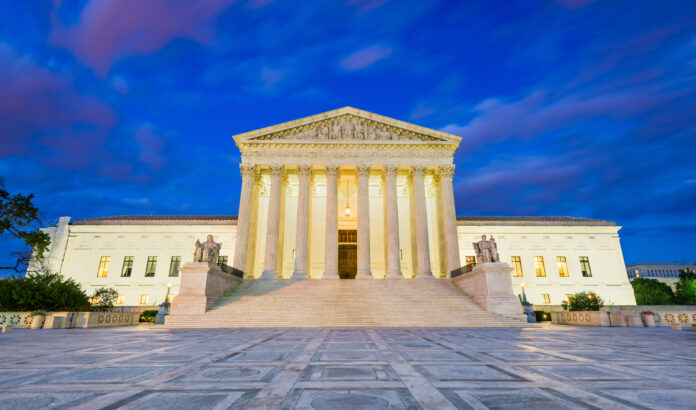Justice Barrett was formally sworn in last night. If your business relies on patents in any way, you might be wondering how the new Supreme Court will affect the patent system. And you’d be right to wonder.
In recent years, the most significant (and often controversial) changes in the U.S. patent system have come from the Supreme Court—see for yourself in our handy-dandy quick reference guide, which summarizes a decade of changes in the U.S. patent system:
OBTAINING AND ENFORCING PATENTS ISN’T AS SIMPLE AS IT USED TO BE.
We’ve seen more landmark changes to the U.S. patent system in the past 10 years than in several previous decades combined.
Have these changes affected your business? Maybe more than you know!
The U.S. Supreme Court, Congress, and the Patent Office have all played a role in these shifts.
In this FREE infographic, you’ll get a snapshot of:
- New statutes that changed the role of patents in IP protection
- Key USPTO initiatives that affect patent prosecution and litigation
- Landmark U.S. Supreme Court cases influencing patentability
Fill out the short form on this page to get the infographic now.
GET THE INFOGRAPHIC
The most consequential of these changes was the Supreme Court’s decision on patent eligibility known as “Alice”. The Alice decision has been highly criticized as one of the most problematic issues in the U.S. patent system, and many prominent voices have called for the Supreme Court and Congress to fix it.
In short, the Alice decision created a new legal framework for determining whether a new invention is the type of thing that’s eligible for patent protection. Unfortunately, the new legal framework is completely unpredictable and often produces absurd results.
Simply put, the Alice decision continues to create a ton of confusion in our patent system. It’s become difficult to answer what should be the most basic question in patent law—what types of things can be patented?
So, will the newest member of the U.S. Supreme Court be the one to shine a new light on patent law, and right the ship that was steered off course by Alice? Don’t count on it.
We don’t know much yet about Justice Barrett’s views on patents or other intellectual property rights, since she didn’t decide many IP cases during her time on the Seventh Circuit.
But when the issue of patent eligibility was raised in the confirmation hearings earlier this month, it was clear that reforming Alice is not at the top of Justice Barrett’s agenda. Law 360 reports that during the hearings:
[Senator] Tillis told Judge Barrett that in his view, “We’ve seen a lot of Supreme Court cases that have waded into patent eligibility and produced a series of opinions that have really muddled the waters.” He asked for her views on those rulings and whether she thinks “the court should go back and clarify at least the method they use to reach their opinion.”
“I have to be completely honest and confess to you I can’t think of what particular cases you might be thinking of on patent eligibility,” Judge Barrett responded.
This was an insightful moment because it shows that you don’t have to be familiar with the patent system to become a Supreme Court Justice. Which gives weight to the argument that Congress—not the Supreme Court—is best equipped to fix the problems created by Alice.
And that, apparently, was Senator Tillis’ point in lobbing this question in the first place. At the end of their exchange during the confirmation hearings, Justice Barrett observed, “those seem like matters that are best addressed by the legislature, a democratically elected body, not policy made by courts.” Amen!
It’s no coincidence that this issue was raised by Senator Tillis. He’s half of the bipartisan pair of U.S. Senators who pushed hard last year for a statutory solution to the problems created by Alice. Their effort fizzled out, and so the problem remains.
Tillis is now in a very tight race for reelection next week. If he pulls out a win, perhaps he and Senator Coons will join forces again to find a legislative solution in the next Congress.

Michael K. Henry, Ph.D.
Michael K. Henry, Ph.D., is a principal and the firm’s founding member. He specializes in creating comprehensive, growth-oriented IP strategies for early-stage tech companies.

